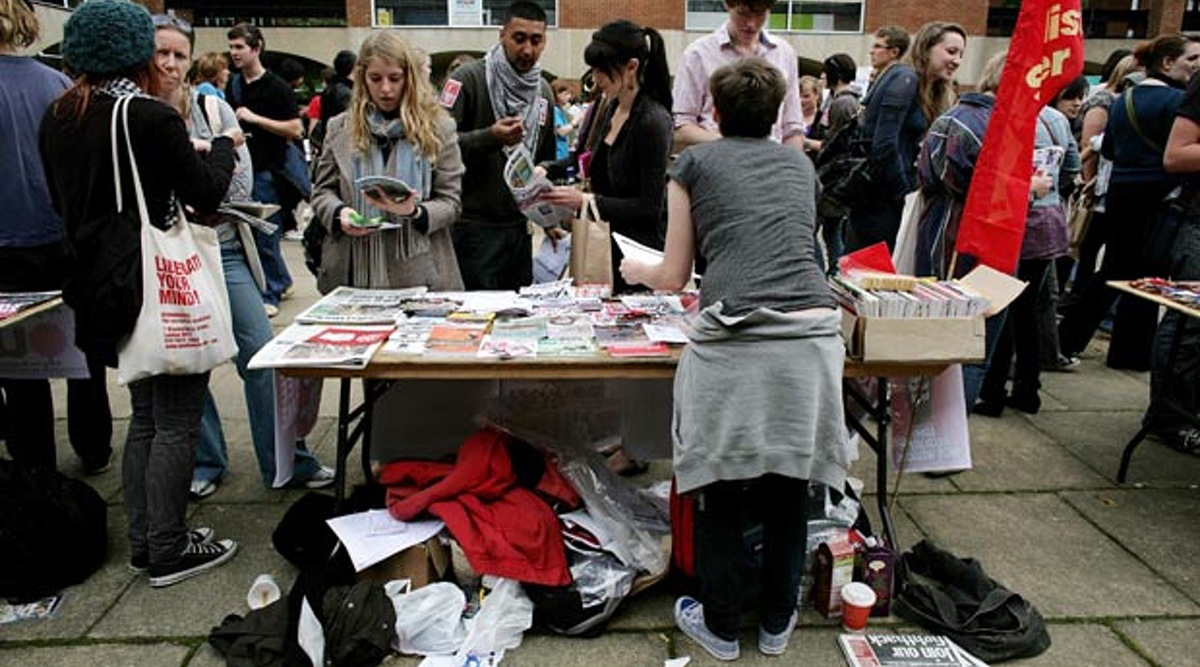A new study published by Equality and Human Rights Commission (EHRC) last Friday has found that young people in Britain under the age of 34 might be undergoing the worst economic level of all generations.
Whereas life has become much fairer for some ethnic minorities in Britain, lives of young white Britons have become much worse. The report shows some shocking data supported by a comprehensive analysis on how Britain has witnessed a reviving economic growth to cut debt, and these economic improvements have been distributed unfairly among Britons, creating unequal opportunities.
The report shows who were the winners and who were the losers of such economic growth, as it concluded that the average income of a young person had fallen dramatically in the past five years, and more barriers were preventing them from gaining economic independence.
According to the report entitled “Is Britain Fairer?”, unemployment rate for young white Britons, (aging 16- to 24-year-olds) stood at 14.8 percent for the three months to August 2015. The rate is higher than the 13.8 percent recorded before February 2008, immanently before the global economic crisis hit.
Also many Britons’ wages are very low if compared to others. Earnings are decreasing and many people are in low paid work. In 2013, people are paid roughly 65p.
- Employment for young people has reduced more than 5 percentage points in England, Scotland and Wales from 2008 to 2013.
- Over 1 in 5 economically active 16-24 year olds were looking for work across England, Scotland and Wales in 2013 compared to less than one in 10 for most other age groups.
- In 2013, the employment rate in Great Britain was 47.5 per cent for disabled people compared to 78.3 per cent for non-disabled people.
- By 2013, someone from an ethnic minority group was over twice as likely to be unemployed than someone from a white ethnic group.
- 16–24 year olds had the lowest employment rates, and the employment gap between the oldest and the youngest age groups increased.
As education has its major effect and influence on getting a job, the report also highlights the fact that white pupils in Britain have some issues when it comes to education. It also shows the greater and wider opportunities which the ethic minorities do have in education and that whites do not:
- White people do not perform well in higher education as much as the Chinese or the Indians, who perform better than all other ethnicities at school or higher education.
- White pupils from poorer background suffer drastically at the beginning of their lives; consequently, they continue to suffer and to fall behind at ever other ethnic group at school – with their chances of a successful and prosperous career decreasing as a result.
Thus, education and employment had improved for people of Bangladeshi and Pakistani heritage, while people from African and Caribbean descent had seen some of the biggest falls in income.
The report should be awake up call for both the British government and the government. Actions must be set quickly to revive what could be lost and to endeavour how to cope with a particularly set of circumstances that would made young Britons a lost generation
EHRC commissioner Laura Carstensen said, commenting on the report, “Theirs are the shoulders on which the country will rely to provide for a rapidly ageing population, yet they have the worst economic prospects for several generations,” she said.
It seems that the measures that the Conservative government had brought, have also neglected young people. Chancellor George Osborne announced a “national living wage” in July, but it will only be available to workers aged 25 and over.
Those between ages 21 and 24 will still be forced to work on the current minimum wage of £6.70 ($10.30) per hour.
In a statement held by the Trade Union Congress (TUC) , General Secretary Frances O’Grady said that the government needs to tackle low-pay, housing costs and youth employment.
“This report should be wake-up call to ministers. Hiking up university and college fees and excluding young people from the new higher minimum wage rate is not the way to build a fair and prosperous Britain. It is the blueprint for a lost generation,” she said.
“Without better employment and training opportunities many young people will continue to be shut out of the recovery.”


